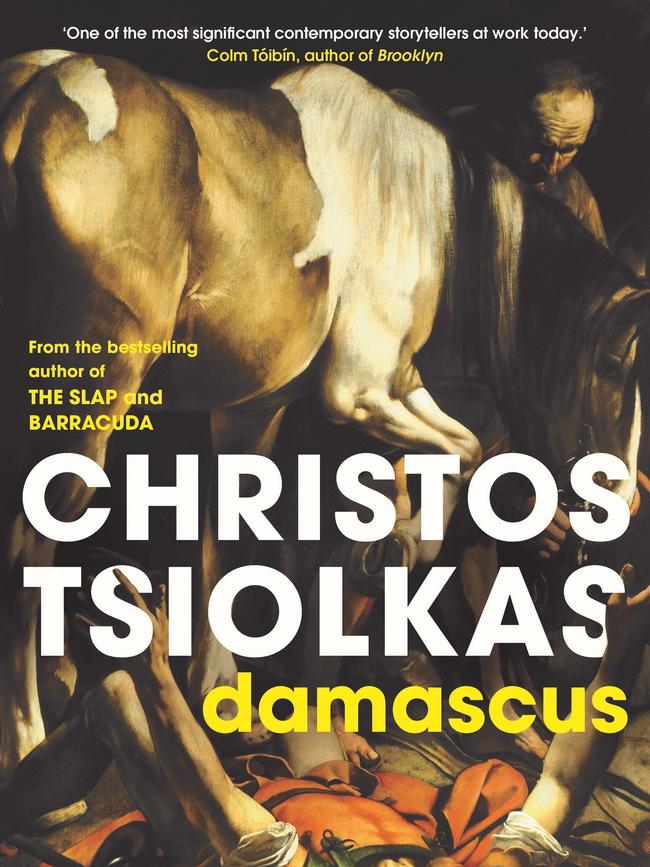ARA Historical Novel Prize making history
The eight-book longlist for the inaugural ARA Historical Novel Prize, worth $50,000 to the winning author, has been released.

That the span of history stretches from the big bang until yesterday is highlighted in the eight-book longlist for the inaugural ARA Historical Novel Prize worth $50,000 to the winning author.
Christos Tsiolkas is in contention for Damascus, which is the ‘‘oldest’’ historical novel of the eight as it deals with the birth of Christianity. Indigenous writer Tara June Winch is there for her Miles Franklin-winning novel The Yield, which is set in more recent times.
“I am enormously pleased to be nominated because to do history as fiction is hard,’’ Tsiolkas told The Australian
“I love reading history and I knew that as a fiction writer I couldn’t duplicate the work of the great historians — I had to find the voice and the voices that can narrate the past.
“I was always terrified of not having kept the faith with history and its real people. So that people who work in history have responded in this way to Damascus means a lot. ‘’
In The Yield, an Indigenous man compiles a dictionary to preserve his mother tongue. In Pip Williams’s longlisted The Dictionary of Lost Words, set in the early 1900s, a young English woman tries to protect words that are in danger of extinction.
Three novels tap the rich vein of colonial Australia: Sienna Brown’s Master of Fate, centred on a Jamaican slave who ended up in NSW; Catherine Jinks’s Shepherd, about a young Suffolk poacher who ended up in the same place; and Mirandi Riowe’s Stone Sky Gold Mountain, in which Chinese siblings chance their luck in the gold fields.
Nigel Featherstone is longlisted for Bodies of Men, set during World War II, and US-based Dominic Smith is in the running for The Electric Hotel, which charts the end of silent movies and the start of the modern motion picture industry.

The prize, organised by the Historical Novel Society of Australasia, is open to residents of Australia and New Zealand. The longlist, announced on Wednesday, was chosen from 185 entries.
Chief judge Linda Funnell said it was “a privilege to see the breadth and quality of historical fiction written and published in Australia and New Zealand’’.
In a fillip for the writers, the prize sponsor, infrastructure firm ARA Group, has decided to double the funding to $60,000. The winner will receive $50,000 and the two other shortlisted writers will received $5000 each. The three-book shortlist will be announced on October 28 and the winner on November 10.
ARA founder and managing director Edward Federman said the funding increase, which makes the prize as lucrative as the Miles Franklin, was a response to the challenges facing the arts sector during COVID-19. “The pandemic has adversely affected the livelihoods of those working across all facets of the literary community,’’ he said. “We’re hopeful the additional funding will not only make a considerable difference to the lives of the winning authors but shine a light on the historical fiction genre.’’
HNSA chair and author Elisabeth Storrs said “The longlist demonstrates the true diversity of historical fiction, and its innate ability to explore bygone eras, to illuminate new interpretations, and transport readers to a different time and place.’’




To join the conversation, please log in. Don't have an account? Register
Join the conversation, you are commenting as Logout